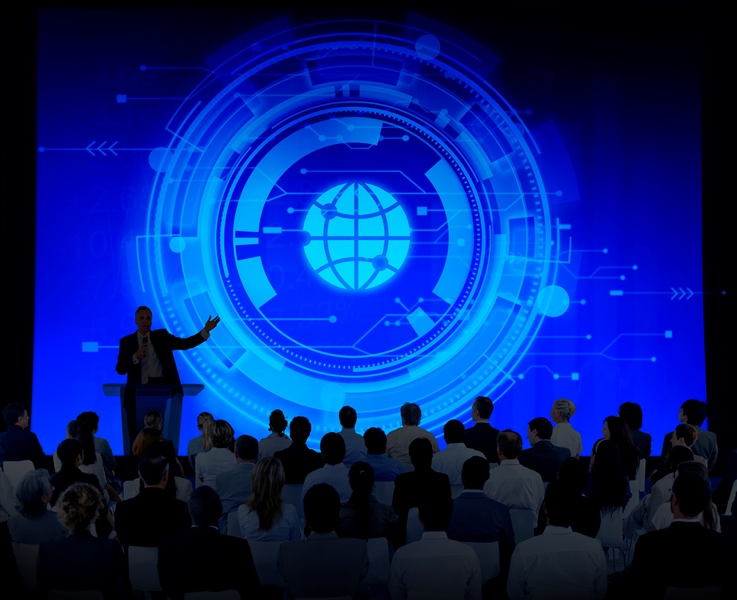In today’s fast-paced digital world, technology plays a crucial role in shaping every aspect of our lives, including corporate event marketing. As professionals in the events industry, it’s imperative to stay up to date with the latest trends and leverage technology to create unforgettable experiences for attendees. Here are some technology trends that are shaping the future of corporate event marketing.
1. Virtual and Hybrid Events: The COVID-19 pandemic has accelerated the adoption of virtual and hybrid events. Virtual events allow companies to connect with a global audience without the constraints of physical venues. With the help of virtual event platforms and live streaming technologies, attendees can participate from the comfort of their homes or offices. Hybrid events combine the best of both worlds by offering in-person and virtual experiences simultaneously. These events create opportunities for increased reach, engagement, and accessibility.
2. Artificial Intelligence (AI) and Machine Learning (ML): AI and ML technologies are revolutionizing event planning and execution. Chatbots powered by AI can provide instant support to attendees, answer their questions, and guide them through the event experience. Machine learning algorithms can analyze attendee data and provide valuable insights for personalizing future events. AI-powered facial recognition systems can streamline check-in processes and enhance security at events. The possibilities are endless, and event professionals can leverage these technologies to deliver exceptional experiences.
3. Augmented Reality (AR) and Virtual Reality (VR): AR and VR are transforming the way attendees experience events. With AR, event planners can create interactive and immersive experiences by overlaying digital content onto the real world. Attendees can use their smartphones or AR glasses to explore virtual exhibits, view product demonstrations, or even network with other attendees. VR takes this a step further by completely immersing attendees in a simulated environment. They can virtually visit a venue, participate in interactive workshops, or engage in team-building activities, all without leaving their homes.
4. Live Streaming and On-Demand Content: Live streaming has become a staple in event marketing, enabling companies to broadcast their events to a global audience. Social media platforms like Facebook Live, YouTube Live, and LinkedIn Live have made it easier than ever to engage with attendees in real-time. On-demand content allows attendees to access recorded sessions, presentations, and workshops at their convenience. This trend not only broadens the event’s reach but also provides an opportunity for attendees to revisit valuable content and enhance their learning experience.
5. Data Analytics and Personalization: Collecting and analyzing data from events can provide valuable insights for event planners. By leveraging data analytics tools, professionals can understand attendee preferences, measure engagement levels, and make informed decisions for future events. This data-driven approach enables personalized experiences, where attendees receive relevant content, recommendations, and networking opportunities based on their interests and behaviors. Personalization fosters deeper connections, enhances engagement, and ultimately leads to greater attendee satisfaction.
It is clear that technology is shaping the future of corporate event marketing in a myriad of ways. From virtual and hybrid events to AI-powered chatbots, AR/VR experiences, live streaming, and data analytics, the possibilities for innovation are boundless. Embracing these technology trends allows event professionals to elevate the attendee experience, increase engagement, and deliver impactful events that leave a lasting impression. By staying at the forefront of these technological advancements, event marketers can ensure their events remain relevant, memorable, and successful in the ever-evolving digital landscape.

